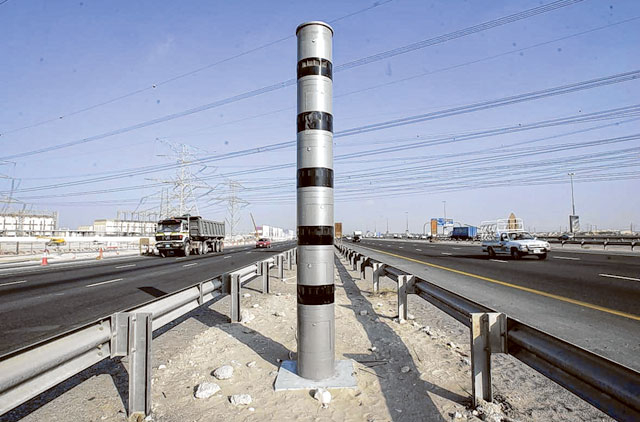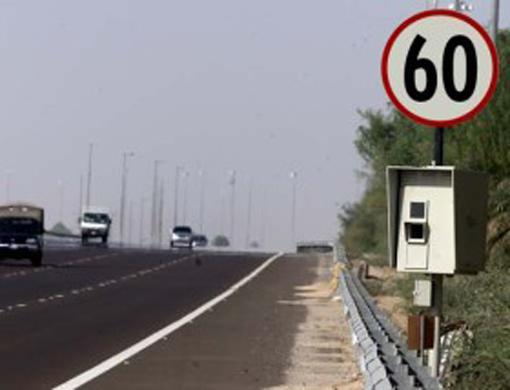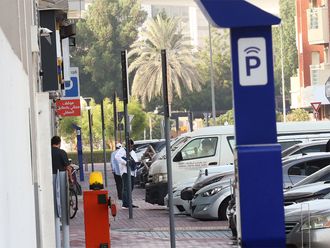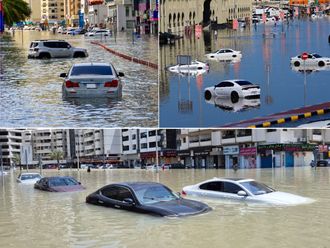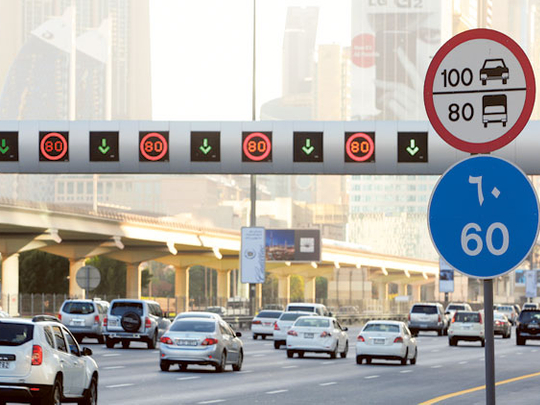
Dubai: New road rules were implemented across the country last Saturday, July 1, which means that UAE drivers will now have to pay heftier fines for traffic violations. Here is a list of every possible traffic violation, fine and black points you could get.
As the penalty for exceeding the speed limit has drastically increased to up to Dh3,000, has there been any changes to the 20km/h grace window?
The grace window is the extra speed motorists can drive without getting flashed by a radar. For example, if a road speed limit is 120 km/hr, you will get caught by the radar at 141 km/h.
To the knowledge of Road Safety UAE, no changes have been made to the 20km/h grace window.
So that’s one less change that motorists in the UAE have to remember.
The rule change
The new and updated traffic rules and traffic fines address many critical issues of reckless driving, driving distractions and compliance with registration rules.
Thomas Edelmann, founder and managing director of Road Safety UAE, said: “The rule change addresses this important road safety opportunity: failure to fasten seat belt while driving will cost motorists Dh400 per person and four black points. Allowing children under 10 years old, or shorter than 145cm, to sit in the front seat of a vehicle carries a fine of Dh400 and four black points."
The amendments also have a greater focus on road behaviour with penalties for using phones or other distraction increased to Dh800 and four black points. Confiscation of vehicles is also central to the new law with reckless driving leading to confiscation of the vehicle for 60 days apart from a fine of Dh2,000 and 23 black points.
“From a road safety perspective, all of those changes are highly commendable. We want to strongly underline the one rule change we believe is the most important one to save lives and to prevent injuries on our roads: the introduction of the holistic seat belt law, meaning ‘one person – one belt’.
"The reason why we want to single out this one rule change is the current lack of seat belt use in the UAE,” he said.
According to a research project carried out by Road Safety UAE in February 2017, 78 per cent of drivers (Emirati 51 per cent), 71 per cent of co-drivers (18-24 years old 52 per cent) and only 11 per cent of back-seat passengers always wear their seat belts.
As many as 34 per cent do not have proper child restraint systems and of those who do have, 30 per cent do not always use them for their children.
“The introduction of new rules alone will not change a lot and the success of these new rules will depend on the degree of enforcement and education. The concerned governmental entities are well aware of it and the broader public must understand, that we all can and must contribute to make these rules a success and to improve the UAE’s road safety,” said Edelmann.
“With regards to enforcement, we want to see more innovative ways and technologies like mobile radar units, police officers with portable radar devices, section-control, average speed radar installations, CCTV monitored critical areas of ‘misbehavior’ and in general, even more police presence on the roads,” he said.


